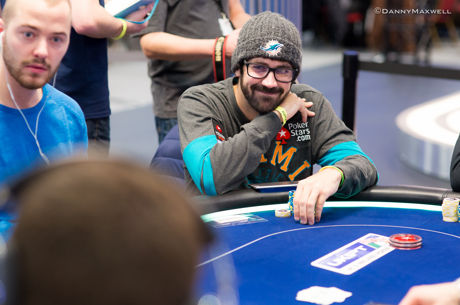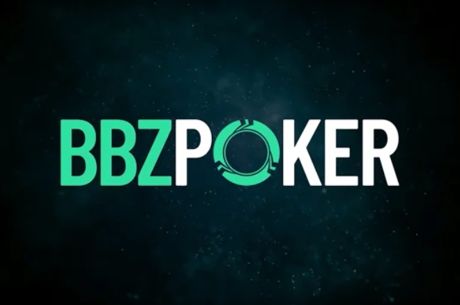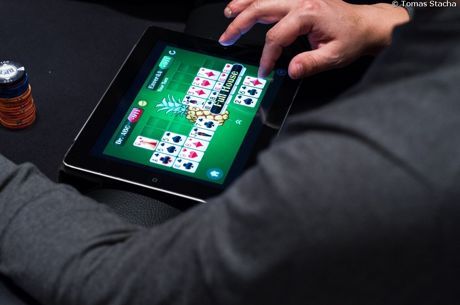Advice from Alex “Assassinato” Fitzgerald: How to Practice Like a Pro

One of the first questions I’ll ask you if you ever do a lesson with me is, “How many hours a week do you study?”
The answer most players had for many years was, “once in a while.” I’d ask what they meant by that and they’d explain that they watched a video on occasion. They admitted that they probably did not study enough, but they felt like they were wasting their time while they did it.
They would be very surprised when I’d agree with them. “Most training videos and forums are worthless,” I’d agree. “But you still have a responsibility to find out what is really valuable.”
What has helped me a great deal is to find specific topics that I’ll study to death. I’ve then focused my teaching on explaining those concepts to the fullest extent of my understanding.
When I’ve shown my players how I “deliberately practice,” you can see a light go on in their head. “This is what I’ve always needed!” they always say.
If we wanted to become a scratch golfer, we wouldn’t just go play 18 holes whenever the feeling struck. We would make a schedule. On certain days we’d work on putting. On others we’d work on our chipping. Some nights would see us at the driving range. Then, when we felt all the parts were coming together soundly, we’d get some full rounds in.
We can set up a similar system in poker. Let’s talk about some of the ways of practicing available to online players today.
In your Hold’em Manager you’re going to want to go to the “Reports” tab and then select “Tournaments.” All of your hands will load up below. From there, click on a button at the top that says, “More Reports.” On the bottom right of the pop-up there will be a number of Quick Filters.
This will contain all the practice sessions we will be discussing today. If you are on a different statistic tracking software, just Google the topics I am going to list. It is likely your program has them as well.
If you do not have a statistic tracking software installed, it is time to get one. You can get past hands that you played by writing the poker sites you frequent.
Now, let’s discuss some filters.
7. Fold vs. 3-bet and Call vs. 3-bet
(If you would like to read entries 1-6, please contact me at [email protected] and I’ll be happy to send them to you.)
Three-betting is one of the most misunderstood facets of the game today.
Back in 2010, three-betting became more fashionable. People figured out that if you three-bet a shorter stack, the player wielding it was forced into jamming or folding. The three-bet would frequently mean investing 5-6 big blinds in order to win a similar amount, and if the victim wanted to defend the player would need to move all in.
I remember one day I got pissed off when someone did this to me for the umpteenth time and I just flatted. What happened next was pure gold. The guy had no idea what to do. On the flop he put a pitiful little continuation bet out there, which I check-raised and took the pot away.
I began flatting pretty much whenever someone three-bet me. It worked surprisingly well for years. People clammed up. They had reraised preflop precisely because they didn’t want to play the flop.
Around 2012 the American-trained players were off the sites for an obvious reason, and the Europeans were a little more used to being flatted when they three-bet; the play was fairly common in live tournaments in that region. For this reason, flatting three-bets became much less effective.
Yet no matter how many CardRunners EV analyses are presented online, many players still insist on flatting practically every time someone three-bets them. They take it as a badge of honor. They never let anyone take advantage of them, damn it!
When you apply these filters, you’re likely to see that you are hemorrhaging money. It is okay to show a slight loss. If your raise was for 2x, and by calling you lost only 1x, then you’ve cut your losses by half. That still shows up as a loss on the filter.
However, many players find they’re losing money hand over fist in this spot. This is likely because they’re flatting too many three-bets that are large, say 2.5x or bigger. They also are flatting with suited-gappers and weak aces which have a hard time turning a postflop profit.
Pay attention to when your preflop flats work. Generally, you’ll find your opponent has a huge three-bet percentage and he was continuation betting practically every flop. He possibly never followed up with a bet on the turn. Perhaps you check-raised him and tested his mettle. Perhaps you floated.
What worked in what situations? Take some notes. Try to replicate the results.
8. Fold vs. River c-bet and Flat River
This is a quick one but a goodie. Take a hard look at both filters and ask yourself, “Do I ever fold on the river?”
If you’re like most poker players the answer is, “Yes, but not nearly enough.” Many people are horrified when they open up these filters. They find that if a person bets a moderate amount, they never can find the fold button, even if they can’t give their opponent any kind of bluff.
A much rarer problem — though it does occur with cash game players switching to tournaments — is the person who folds too much. Whenever their opponent’s line doesn’t spell out their range conclusively, then they fold. They do little bluff-catching.
This is really common with players who come from a “grind out the rakeback” cash game background. There, you make your money and feed your kids by making smaller mistakes than the other guy. Folding to a river bet is often a smaller mistake than making a suspect call. The problem lies in when you do it too often.
9. Triple-Barrel
This is one of my favorites. I recently had a student who told me he played poker because he loved the rush. I said, “So you must really love drugs and alcohol right?”
“No man, none of that,” he answered.
This didn’t compute with me. “Never? You were never into it?”
“Well… not anymore,” he laughed.
I realized then we were in a group setting, and maybe he didn’t want to talk about this. I then offered, “I’m the exact same way... with both things. But now, it’s just poker. When I’m in a live tournament, and my opponent is tanking when I’ve triple-barreled with air… that is one of the greatest feelings in the world to me.”
Adrenaline addicts love the triple-barrel. Most poker players abhor it.
Look through this filter. Do you ever make a triple-barrel bluff? If you only have made a couple, what was the reasoning behind your plays? Was it because you felt like it? Were you at the end of a tough session?
If you do triple-barrel bluff on a regular basis, do you do it when there is great logic behind the play? Do you do it versus very susceptible players, or do you just get frustrated and try to make a fish lay a hand down?
What kind of boards do you like to triple-barrel? Does your opponent have a “capped” calling range on the flop? By that I mean does he raise with most of his premium hands on the flop, the way some people do on very coordinated boards? These are interesting boards to barrel, because our opponents’ range is capped out at one pair, which we can likely blow them off of by the river.
It is very important we have some triple-barrel bluffing range. Generally, we should have one bluff for every two value hands; we do not want to be weighted too much in either direction. You should be triple-barreling more for value these days due to people’s expanded calling ranges. You should also be triple-barreling as a bluff more, because many players call on the turn with their entire flop calling range, but will not call a river jam with less than top pair with a top kicker.
Conclusion
It is not the end of the world if you are making any of these mistakes. In fact, it’s excellent. We’re finding out exactly why you’re not making the money you want. We can work on all of these, one by one, by assigning ourselves a task for the day. We can mark the hands and review. We can study, make new coursework, and grow.
This article has been a preview for Alexander Fitzgerald’s upcoming webinar . Discount tickets are available only until April 16th, so act now!
Alexander Fitzgerald is the world’s most active tournament poker coach. You can reach him for questions about the webinar and additional free materials at [email protected].
Want to stay atop all the latest in the poker world? If so, make sure to get PokerNews updates on your social media outlets. on Twitter and find us on both and !









